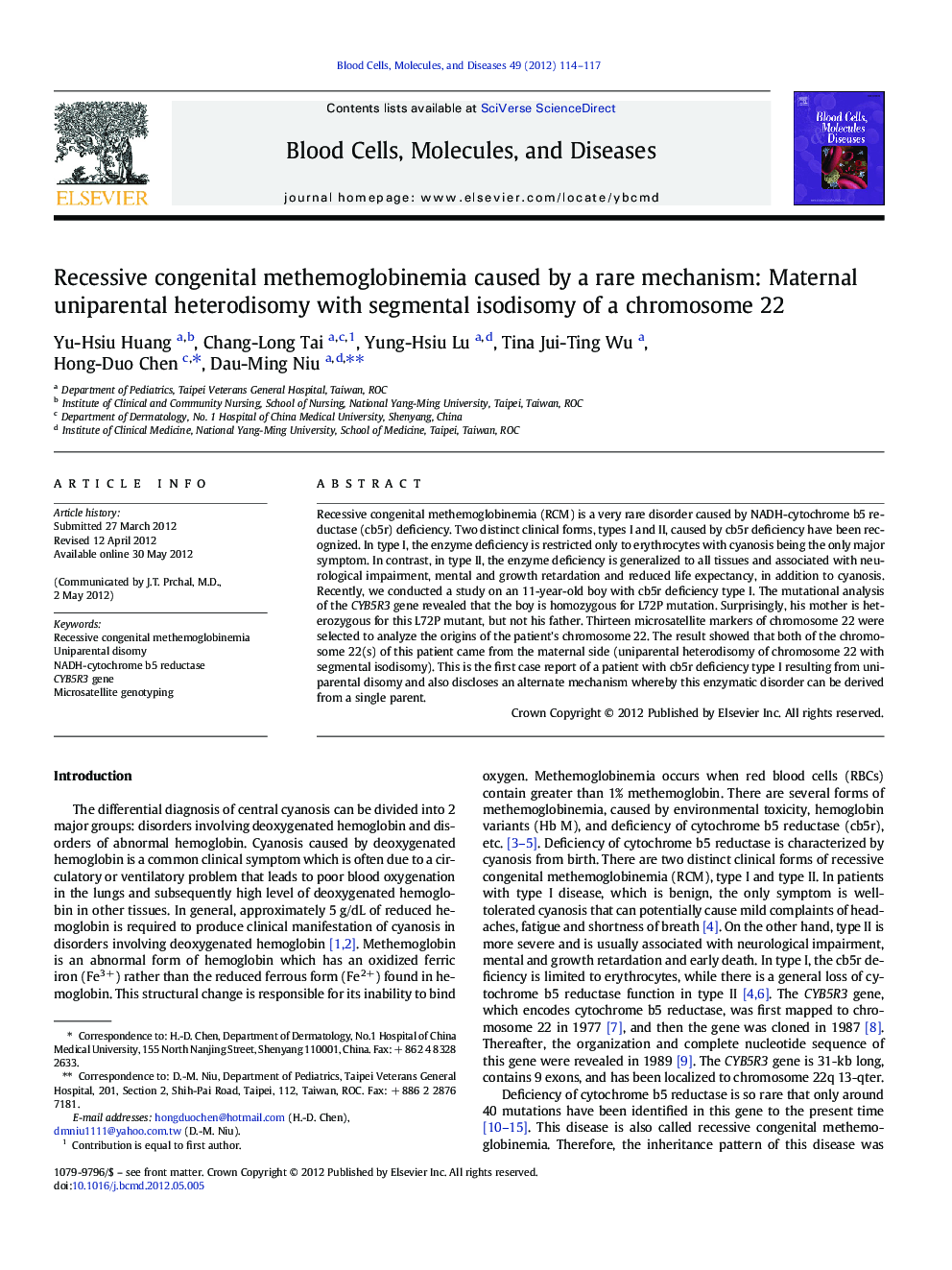| کد مقاله | کد نشریه | سال انتشار | مقاله انگلیسی | نسخه تمام متن |
|---|---|---|---|---|
| 2827564 | 1162452 | 2012 | 4 صفحه PDF | دانلود رایگان |

Recessive congenital methemoglobinemia (RCM) is a very rare disorder caused by NADH-cytochrome b5 reductase (cb5r) deficiency. Two distinct clinical forms, types I and II, caused by cb5r deficiency have been recognized. In type I, the enzyme deficiency is restricted only to erythrocytes with cyanosis being the only major symptom. In contrast, in type II, the enzyme deficiency is generalized to all tissues and associated with neurological impairment, mental and growth retardation and reduced life expectancy, in addition to cyanosis. Recently, we conducted a study on an 11-year-old boy with cb5r deficiency type I. The mutational analysis of the CYB5R3 gene revealed that the boy is homozygous for L72P mutation. Surprisingly, his mother is heterozygous for this L72P mutant, but not his father. Thirteen microsatellite markers of chromosome 22 were selected to analyze the origins of the patient's chromosome 22. The result showed that both of the chromosome 22(s) of this patient came from the maternal side (uniparental heterodisomy of chromosome 22 with segmental isodisomy). This is the first case report of a patient with cb5r deficiency type I resulting from uniparental disomy and also discloses an alternate mechanism whereby this enzymatic disorder can be derived from a single parent.
Journal: Blood Cells, Molecules, and Diseases - Volume 49, Issue 2, 15 August 2012, Pages 114–117